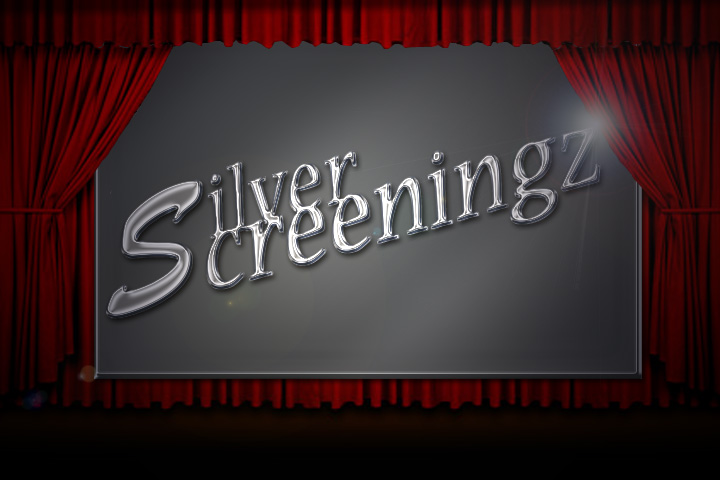
Director: Stanley Kubrick
Run Time: 146 min
Rating: R
Rating: R
Viewer Bias: 10
I have taken an entire class on the films of Stanley Kubrick, therefore I understand some of the inner dynamics of the "Kubrickian" style of film making. Having some knowledge and basis of Kubrick's body of work is essential to uncovering the themes, motifs, symbols, and overall mastery of Kubrick's work.
Although the original novel of "The Shining" was written by Stephen King, the film version of "The Shining" is entirely Kubrick's. Stanley Kubrick was forced to allow King to write the first draft of the screenplay, which Kubrick promptly tossed. This created quite a dispute between King and Kubrick which was never resolved. This is a Stanley Kubrick film.
Direction: 8
Here's the thing, the directing of the film is fantastic, but Kubrick could only work within the limitations of his actors. Although Jack Nicholson gives perhaps the best performance of his career, Shelley Duvall and youngster Danny Lloyd give poor performances. In both interviews and a documentary, shot by Kubrick's daughter Vivian, it was apparent that Duvall did not have a very good working relationship with Kubrick as he constantly pushed Duvall to reshoot scenes: a staple of Kubrick's directing. However, this relationship - and perhaps bad casting - yielded some awkward acting and that tends to be the fault of the director.
Also, as with every Kubrick film, there are some pacing issues. Sometimes long cuts work; other times it's just too much.
Editing: 8
The editing is fantastic and is where the root of the film's suspense is drawn from. However, Kubrick's pacing issues often come from editing which intentionally makes the audience uncomfortable. It's a matter of personal taste although I would assume that the majority of movie going audiences would not appreciate this style and may at times be bored.
Acting: 7
No one would run around a giant hotel flailing their arms like a duck while holding a knife running away from a crazed husband but apparently Shelley Duvall thought so. Duvall's acting can annoy at lot of audiences and my class had a lot to say after we viewed the film. I personally had more problems with Danny Lloyd. I know he was only about six years old when they shot the film, but he needs to learn to open is mouth when he speaks. Maybe I'm being too hard since I can imagine a film like this would be hard to grasp for a child, but he bothers me.
On the other hand Jack Nicholson gives his best performance in this film. The dramatic range and convincing insanity he portrays from Jack Torrance is staggering. From minor facial twitches when confronting Duvall in the film's final act to the universal disingenuous demeanor of America's middle class in the film's first "interview" act, Nicholson plays a dramatic character that morphs from the American "every man" to the American "axe murderer." If you need any more convincing, check out Vivian Kubrick's documentary on the DVD to see just how Nicholson prepares for his axe wielding scenes.
Writing: 6
The overtones of the disgruntled American middle class are intertwined in the writing, but are typically lost on the audience. The dialogue does its job and little more, no fantastic monologues here.
Story: 6
I have never read King's novel of "The Shining," but from what I have been told, it's pretty stupid. Ghosts? Killer Shrubbery? No thank you. Although Kubrick's film may include ghouls - at least the paranormal - it is a psychological thriller and not a science fiction thriller. With the way the story progresses and the film is shot, the audience is challenged to decipher if the events of the film are imaginary or supernatural. Where King places the danger in the paranormal, Kubrick ignites a more terrifying reality - horror within the American family. The closeness and isolation of film reflects the American family and isolation that family members can feel when horror strikes within the home. That transcends stupid ghosts and malicious flora, it becomes commentary, and to some - art.
Cinematography: 10
This is perhaps one of the best shot films ever made. The larger the screen, the greater the experience. The camera often tracks directly behind characters providing a nearly first-person viewpoint. This subjectivity allows the audience to engage the film from the narrowed view of each of the characters. Ironically, the camera work of the film allows the huge hotel to feel very small and that suffocating feeling is increased along with the film's suspense. The first shots of the film are wide, expansive shots of Colorado which eventually dwindles down to the confinement of a confusing hedge maze.
Special Effects: 7
There were was no need for special effects in the film. For a horror film, there is little why way of gore and the film's minor amounts of gore was done relatively well. Make-up work was fantastic.
Music: 10
The editing, cinematography, and music are the three key elements that comprise the suspense of the film. Composers Wendy Carlos and Rachel Elkind exquisitely created a soundtrack that adds to the tension of the film ten fold. Long held notes and the prickling of strings are common horror film musical techniques but were implemented perfectly in "The Shining." The soundtrack absolutely services the film to its fullest potential.
Wow Factor: 9
This is a frightening film yet different from the typical horror films we see today. Kubrick was a director known for his psychological take on stories and that is the true beauty of "The Shining." The complete package from the film's score to its visual look can create just as visceral of a reaction as many of today's goriest films with about a tenth of the gore. A horror masterpiece and one of my favorite scary movies. Happy Halloween!
FILM - 81






No comments:
Post a Comment